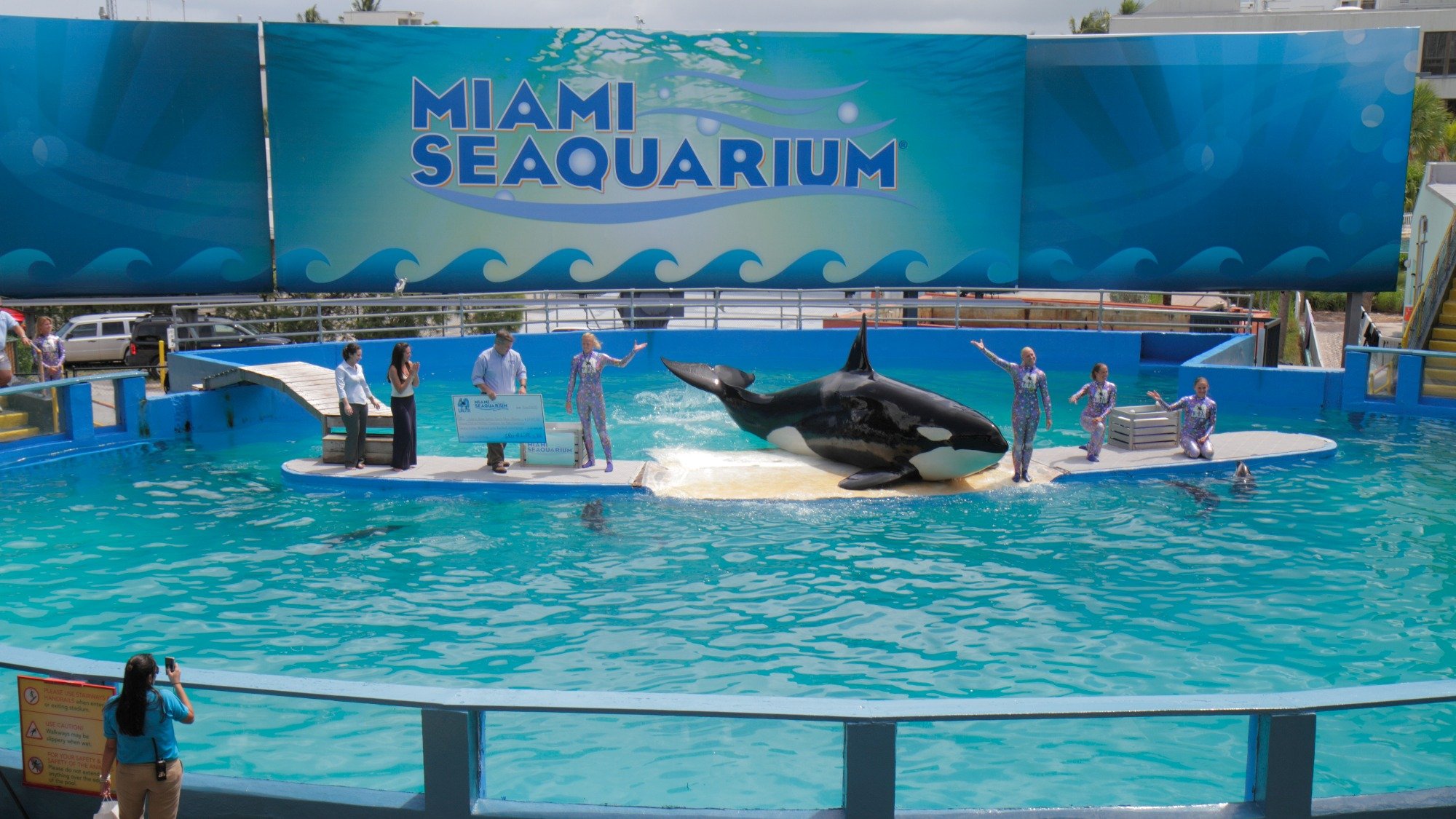

Over half a century since she was captured in the Pacific Ocean near Puget Sound, Lolita the Orca may return to her home waters. Lolita, also known by her Lummi name Tokita or Toki, was captured in Penn Cove off the coast of Washington State in 1970 when she was roughly 4 years old. She is believed to be the oldest orca in captivity.
The Miami Seaquarium in Florida announced its plans to move Lolita home at a press conference with nonprofit group Friends of Lolita and philanthropist and owner of the NFL’s Indianapolis Colts, Jim Irsay, on March 30. The move comes after growing pressure from animal rights groups, lawsuits from groups like People for the Ethical Treatment of Animals (PETA), and anger and possible lawsuits from the Lummi Nation.
[Related: A baby orca sparks a glimmer of hope for an endangered group of whales.]
Irsay did not say how much the relocation would cost, only citing a “big number.”
“I’m excited about being part of Lolita’s journey,” Irsay told reporters, according to NPR. “Ever since I was a little kid I’ve loved whales, just loved whales because [of] the power, the greatness of them and how gentle they are. She’s lived this long to have this opportunity and my only mission … is to help this whale to get free.”
While this is welcome news, many obstacles remain, particularly the logistics of transporting the ailing 7,000 pound whale from Florida up to Washington State, as well as preparing the 57-year-old to live back in the wild after living in captivity for over 50 years.
According to the Miami Herald, the goal is to place Lolita back in the sea and reunite her with her family, the L pod of southern resident orcas. This unique group of orcas spend the summer and autumn months in Puget Sound and were added to the endangered species list in 2005. Their population has “fluctuated considerably” since the 1970s, with pods “reduced during 1965-75 because of captures for marine parks,” according to NOAA Fisheries.
“If she is healthy enough to be transported, the issue is her skill set,” Miami-Dade Commissioner Raquel Regalado, who has been an advocate for Lolita and improvements at Seaquarium, told the Herald. “She doesn’t know how to catch or hunt. We’re not really sure if she can communicate with other whales because she’s been alone. Now we kind of have to retrain her.”
The team will likely borrow methods used to move Keiko, the orca from the 1993 movie Free Willy. Keiko was moved from a tank at a marine park in Mexico to an aquarium in Oregon, and then on a US Air Force cargo plane to a sea pen in Iceland. Keiko eventually swam to Norway and lived in the ocean for five years. He died of pneumonia in 2003.
[Related: California Bans Captivity, Breeding Of Orcas.]
MS Leisure, who owns the Miami Seaquarium, announced in March 2022 that Lolita, who had fallen ill, would no longer be put on display for shows in the whale stadium. In June 2022, an assessment from two veterinarians not affiliated with the seaquarium found that Lolita’s condition had improved.
She now lives in an 80-foot-long by 35-foot-wide by 20-foot-deep tank, which inspectors from the US Department of Agriculture have closed to visitors until the stands and tank are repaired.
Some animal rights activists hailed the decision as a long time coming and hope other marine parks follow suit.
“If Lolita is finally returned to her home waters, there will be cheers from around the world, including from PETA, which has pursued several lawsuits on Lolita’s behalf and battered the Seaquarium with protests demanding her freedom for years,” the PETA Foundation’s vice president and general counsel for animal law Jared Goodman, said in a statement. “If the Seaquarium agrees to move her, it’ll offer her long-awaited relief after five miserable decades in a cramped tank and send a clear signal to other parks that the days of confining highly intelligent, far-ranging marine mammals to dismal prisons are done and dusted.”
